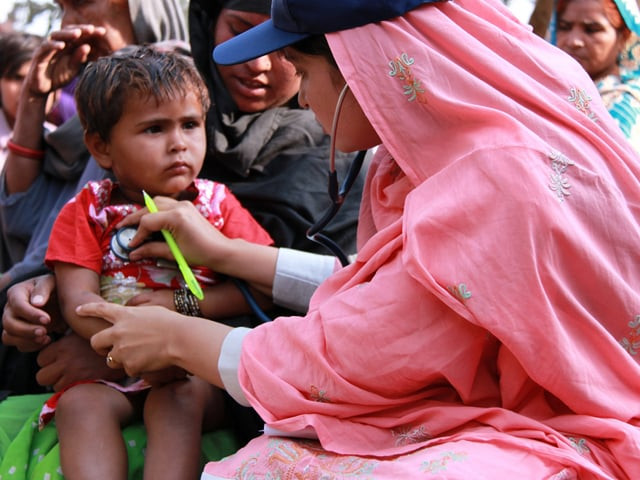Facts of life
Pakistan has the highest number of stillborn babies in the region at one-in-23.

While other nations have been able to offer mothers and newborns improved healthcare, we have failed miserably in this regard. PHOTO: FILE/DFID
The reasons given have been discussed before, and include a high rate of pre-term and underweight births, at 16 and 32 per cent respectively, the poor nutritional status of mothers and a lack of family planning. The country also had the highest number of stillborn babies in the region, at one-in-23, while one-in-28 do not live beyond the first year. The need for more health workers and improved breastfeeding practices to prevent this situation was also discussed.
Quite clearly, we are looking at disaster. Indeed, we have been looking at it for far too long. While other nations have been able to offer mothers and newborns improved healthcare, we have failed miserably in this regard. The issue has never been a policy priority, and it is women and children who suffer as a result. Most women in the country give birth in the absence of a trained attendant; they receive no ante or post-natal care. The situation can change only if the government makes the issue a priority, and takes far more active measures to offer maternal and child healthcare while also raising awareness about this issue and all those related to it. Only if this happens can the lives of people be changed.
Published in The Express Tribune, May 9th, 2013.














COMMENTS
Comments are moderated and generally will be posted if they are on-topic and not abusive.
For more information, please see our Comments FAQ